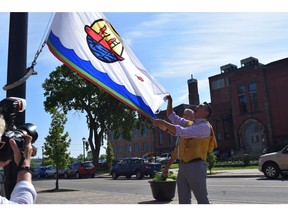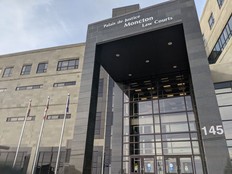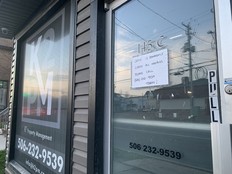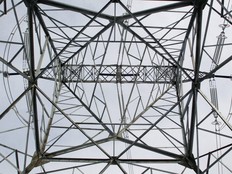It's up to the province to avoid 'total chaos': Wolastoqey lawyer
Indigenous side rebuffs arguments put forward by province in big title claim case for more than half of New Brunswick's territory

Article content
A lawyer for the Wolastoqey Nation told a judge on Wednesday the provincial government could avoid “total chaos” if it stops neglecting its constitutional obligations and sorts out how a declaration of Aboriginal title would affect New Brunswick property owners.
Jaclyn McNamara, a lawyer with the OKT law firm, was responding to a motion put forward by the province to absolve private property owners from the big title claim that includes more than half of New Brunswick’s territory on the western side.
The provincial government insists that the property rights of the majority – close to half a million residents living in homes and running businesses – could be put at risk if the Wolastoqey leaders representing about 8,400 Indigenous people get their way.
This litigation will take a decade or longer, and the province can do this in an orderly way.
Jaclyn McNamara
“Declaration of Aboriginal title need not be declaration of total chaos,” McNamara told the judge. “This litigation will take a decade or longer, and the province can do this in an orderly way.”
For three days, the two sides have been arguing what would happen if Justice Kathryn Gregory of the Court of King’s Bench accepted Aboriginal title upon more than 250,000 land parcels, much of it privately owned.
There’s a lot at stake. In the special courtroom set up temporarily in a conference room at the Fredericton Inn, no less than 25 lawyers and legal professionals are hearing the case.
The Wolastoqey are fighting to have the property owned by the province and big timber firms returned to them, and for government compensation for other parcels in the hands of everyday New Brunswickers, claiming the land they’d occupied for time immemorial was stolen from them and improperly granted to European settlers.
The province and the industrial defendants have warned that if Aboriginal title is declared on all the private holdings, people won’t be able to enjoy their properties. Mortgaging, selling or developing their land would become a nightmare, they argue.
McNamara went through previous court cases to try to prove to the judge that everyday property owners, called “strangers to the claim,” would be unaffected.
For example, she cited a celebrated case from 1999, when the City of Fredericton tried to expropriate an old rail right-of-way that crossed the property of the Hughes family. The city only named the husband when launching the expropriation, ignoring the wife who co-owned the property, Theresa Hughes. She won her case in the province’s highest court because the city hadn’t named her in the court action. Her title to the land could not be extinguished because she hadn’t been properly informed of the expropriation.
McNamara said it was the same situation with the Aboriginal title claim because the Wolastoqey Nation hadn’t named tens of thousands of everyday property owners as defendants.
The uncertainty in this case is what we’re all dealing with.
Justice Kathryn Gregory
Furthermore, she said, they would be absolved of any future encumbrance on their land because the Wolastoqey Nation had provided a written declaration in the claim that they had no interest in a return of their properties.
“It would not affect the mortgaging or selling of your home or putting a pool in your backyard,” McNamara insisted.
Justice Gregory listened intently throughout the day, occasionally interjecting with questions.
The judge said it was difficult to reconcile the positions of the opposing sides because they were coming from two very different perspectives. Aboriginal title and how it intersects with fee simple private property rights is still an area of law that’s evolving, all sides seemed to agree.
“The uncertainty in this case is what we’re all dealing with,” the judge said. “The Supreme Court of Canada hasn’t weighed in on this subject.”
The case resumes Thursday with a response from the provincial government, the federal government and two of the biggest private landowners that have been named in the title claim, Acadian Timber and J.D. Irving Limited, which have big timber operations on the land in question.











Postmedia is committed to maintaining a lively but civil forum for discussion. Please keep comments relevant and respectful. Comments may take up to an hour to appear on the site. You will receive an email if there is a reply to your comment, an update to a thread you follow or if a user you follow comments. Visit our Community Guidelines for more information.